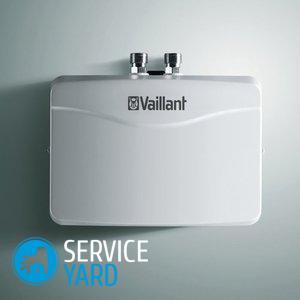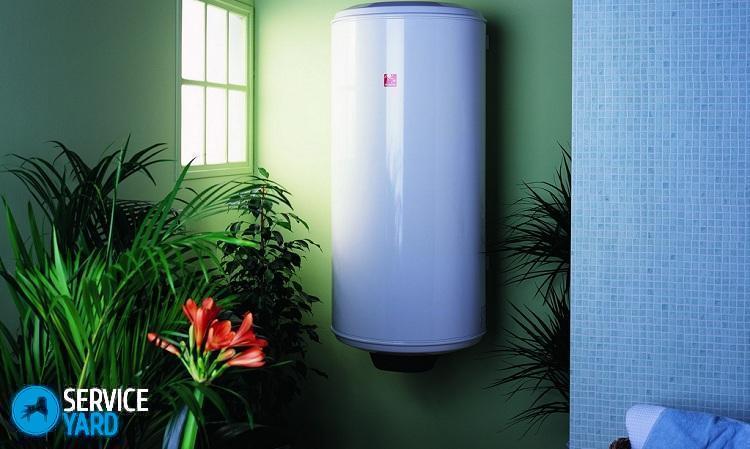Which water heater is better - flow or storage?

People living within the city, whose apartments are connected to the centralized water supply system, at least twice a year encounter such a nuisance when hot water is completely absent and you have to run around with buckets and basins to wash normally. This mainly happens during the preparation of heating units for the heating season and in the summer during the pressing and repair of the heating system. Today you can save yourself from such troublesome affairs and purchase an electric water heater in the store. In stores, they are presented in a huge assortment and the most popular models are storage and flow heaters. Nevertheless, it is difficult for many people to independently decide on the purchase of a particular model. Therefore, today we will try to answer such a common question: which water heater is better - flow or storage?
to contents ↑Features of the operation of storage boilers
To make it easier to answer the question that concerns us, we must first consider the principles of functioning of storage heaters. The device of these models is quite simple:
- Inside the tank, which is covered with a layer of thermal insulation, cold water is supplied directly from the water supply, which is subsequently heated using the built-in electric heater.
- A special built-in thermostat controls the temperature of the water, which is set using the control knob, and as soon as it reaches the set limit, the heater immediately turns off.
- After heating, the water is stored inside the tank, as if in a thermos.
- If it starts to cool again, then the thermostat turns on the heater and heats it a little to the desired temperature.
to contents ↑Important! Even though the storage water heaters are quite voluminous, in modern interiors they look quite aesthetically pleasing.
Advantages and disadvantages of storage boilers
It is difficult enough to immediately determine which boiler is better - flow or storage, so it would be advisable to study the positive and negative sides of each of them in turn. Electric storage heaters are currently quite popular due to their indisputable advantages, these include:
- Ability to work from an ordinary outlet in the apartment.
- Thanks to good thermal insulation, the water remains hot for a very long time.
- The ability to heat water with one device for several water points, for example, a faucet in the bathroom and a kitchen faucet.
- Huge selection of instrument shapes.
As with any other modern technology, they also have some disadvantages. They, although not strongly, but affect the decision-making on the purchase of a boiler. So, the disadvantages of cumulative models include:
- Big sizes. So, for example, for a family of two people, it is better to buy a model with a tank of 50-80 liters, and if even more people live in the apartment, then definitely you need to take a heater with a capacity of 100 liters.
- To install this technique you will need a lot of free space and the most reliable mount.
- A long period of heating water - due to the large size of such models.
- Storage devices, due to the constant heating of water, consume a lot of electricity.
What are instantaneous water heaters?
Electric instantaneous boilers are another good alternative to a constant source of hot water. They can be used not only in apartments, but also in large enterprises. The principles of operation are very different from the actions of storage devices:
- Water heating in them occurs literally instantly. The water passing through the water supply is in contact with powerful electric heating elements. Due to this, it heats up to the desired level.
- Flow models are equipped with flow sensors, which are responsible for turning on and off the heating elements.
- If the flow increases, then additional elements are included. Due to this, significantly reduced the cost of electricity, which is consumed for heating water.
- In addition, such boilers have built-in protection against overheating.
- Modern models of instantaneous heaters are also equipped with an electronic control system, and all information is displayed. That is, you can always see on it the water temperature, the current power of the heating elements, the current water flow.
These nuances are especially important, therefore, they must be taken into account when determining whether to choose a storage water heater, whether it is an accumulative or a flow one.
to contents ↑Advantages and disadvantages of instantaneous boilers
We can name a few undoubted advantages of flow-type heaters:
- Compact devices and the ability to install even in limited free space.
- No restrictions on the volume of water heating.
- Outwardly, they look more aesthetically pleasing than capacitive models.
Although they have minor, but still disadvantages:
- Great electrical power.
- The need to lay the cable from the shield in the entrance to install the device, because it does not work from ordinary outlets.
How to choose between storage and instantaneous water heaters?
And yet, what to choose a water heater - flow or storage? What's better? Prefer a small model or a volumetric tank? Naturally, each person likes something different, and to please everyone at once will not work. It is better to focus in this matter on the goals for which you are buying this device:
- If you do not plan to use it constantly, then your option is a small-sized flow heater.
- If your house often shuts off water for a long time, then it is better to buy a 50-100 liter capacitive heater to provide the whole family with hot water.
Stock footage
As you can see, making a choice is quite simple, if you know exactly when and how much you will use the water heater. We hope that now you have set priorities for yourself and yourself answered the original question.
- How to choose a vacuum cleaner taking into account the characteristics of the house and coatings?
- What to look for when choosing a water delivery
- How to quickly create comfort at home - tips for housewives
- How to choose the perfect TV - useful tips
- What to look for when choosing blinds
- What should be running shoes?
- What useful things can you buy in a hardware store
- Iphone 11 pro max review
- Than iPhone is better than Android smartphones




